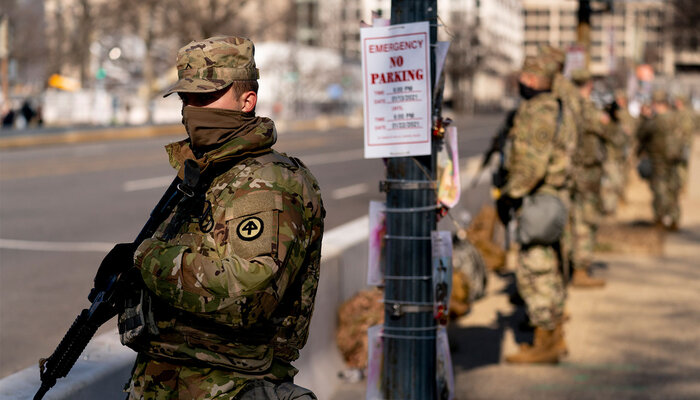You’re reading The Briefing, Michael Waldman’s weekly newsletter. Click here to receive it every week in your inbox.
Donald Trump has made clear that, in a second term, he would govern differently than any president in U.S. history. He has hinted at suspending the Constitution, building vast deportation camps, weaponizing the Department of Justice, and mass firing career civil servants.
Here’s one you might have missed: he reportedly plans to invoke the Insurrection Act, which allows the president to use the military as a domestic police force, on his first day in office.
In 2020, of course, Trump himself engineered a shambolic insurrection. This time, the thought goes, if he is displeased by protests, he will use the law as a way to crack down and grab more power. Think of the “Reichstag moment” reportedly feared by General Mark Milley three years ago.
Much like the Electoral Count Act — a similarly archaic and poorly drafted law that Trump attempted to exploit — the Insurrection Act was written for a different time and urgently needs reform, as my colleague Joseph Nunn writes.
There’s some deep history to be aware of. In the 19th century, the military was used domestically to a wide variety of ends: to persecute Native American tribes on the frontier and capture fugitive slaves, but also to ensure Black men could vote and crush the Ku Klux Klan. It has a complicated record during a complicated century.
Congress intervened in 1878, prohibiting the president from using federal troops to enforce civilian law under most circumstances. The Insurrection Act, which dates all the way back to 1792, was maintained as an exception to this prohibition.
The law is a model of how not to draft major legislation. Key terms like “insurrection” and “rebellion” are left undefined. The language is so outdated that no modern American can be sure of its meaning. The few times the law was reformed, it was changed to give the president more power rather than less. And courts have interpreted it to grant the president exclusive and unreviewable authority to decide whether the conditions to deploy the military have been met.
There’s a complete absence of checks and balances. As a result, we rely on the wisdom and good faith of a single person to uphold the important wall between military action and domestic policing.
Trump reportedly considered activating the Insurrection Act twice during his presidency — first to quell Black Lives Matter protests and later to hold on to power after his election defeat.
The Brennan Center has proposed important reforms to the Insurrection Act. Congress should define the law’s critical terms. Legislators and judges must play a larger role in overseeing the president’s exercise of the law. There’s nothing remotely partisan about these changes — they’re common sense. Congress can and should adopt them today.







